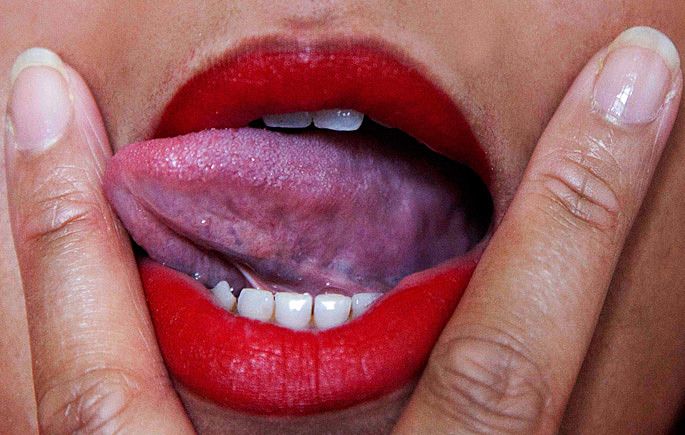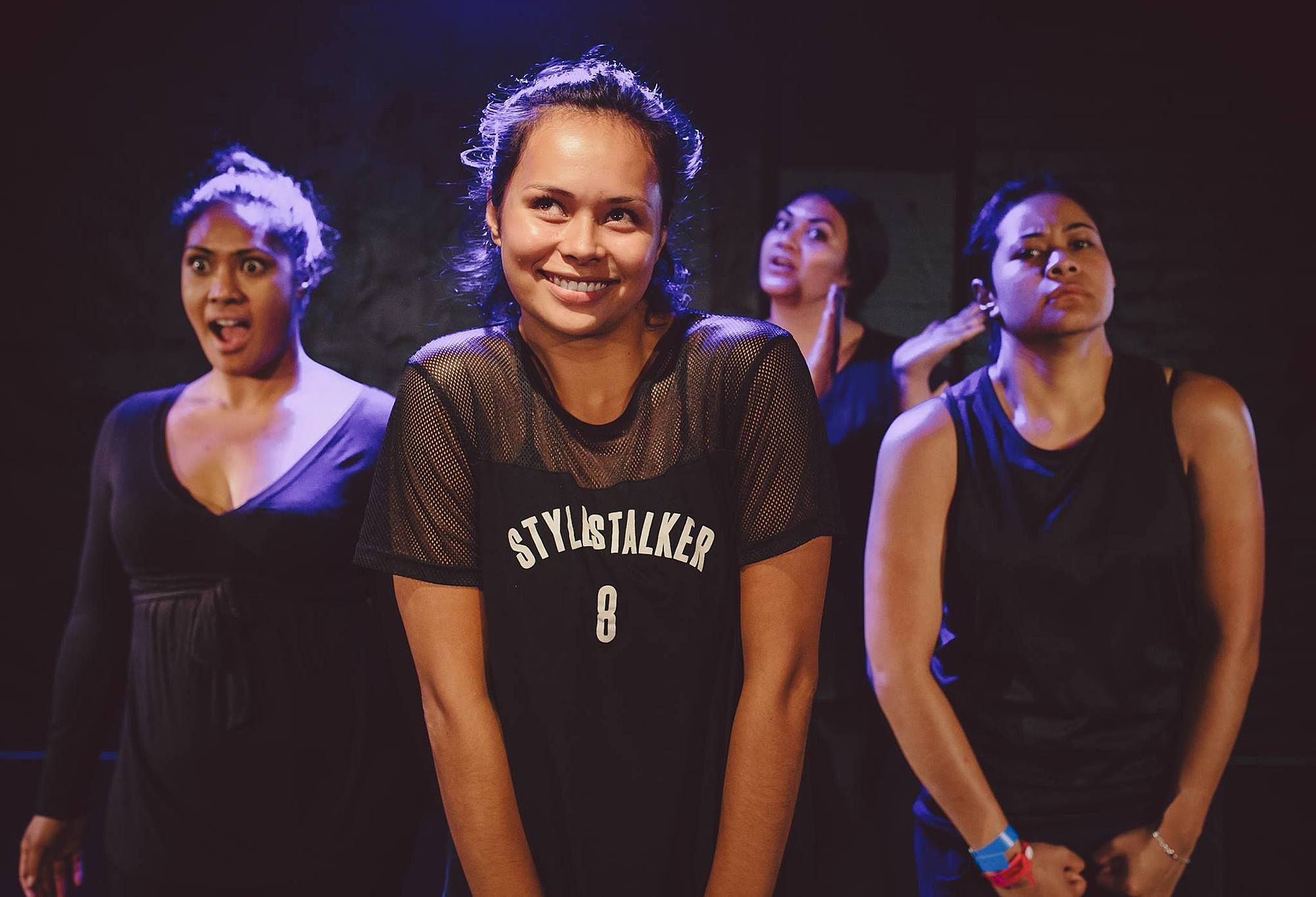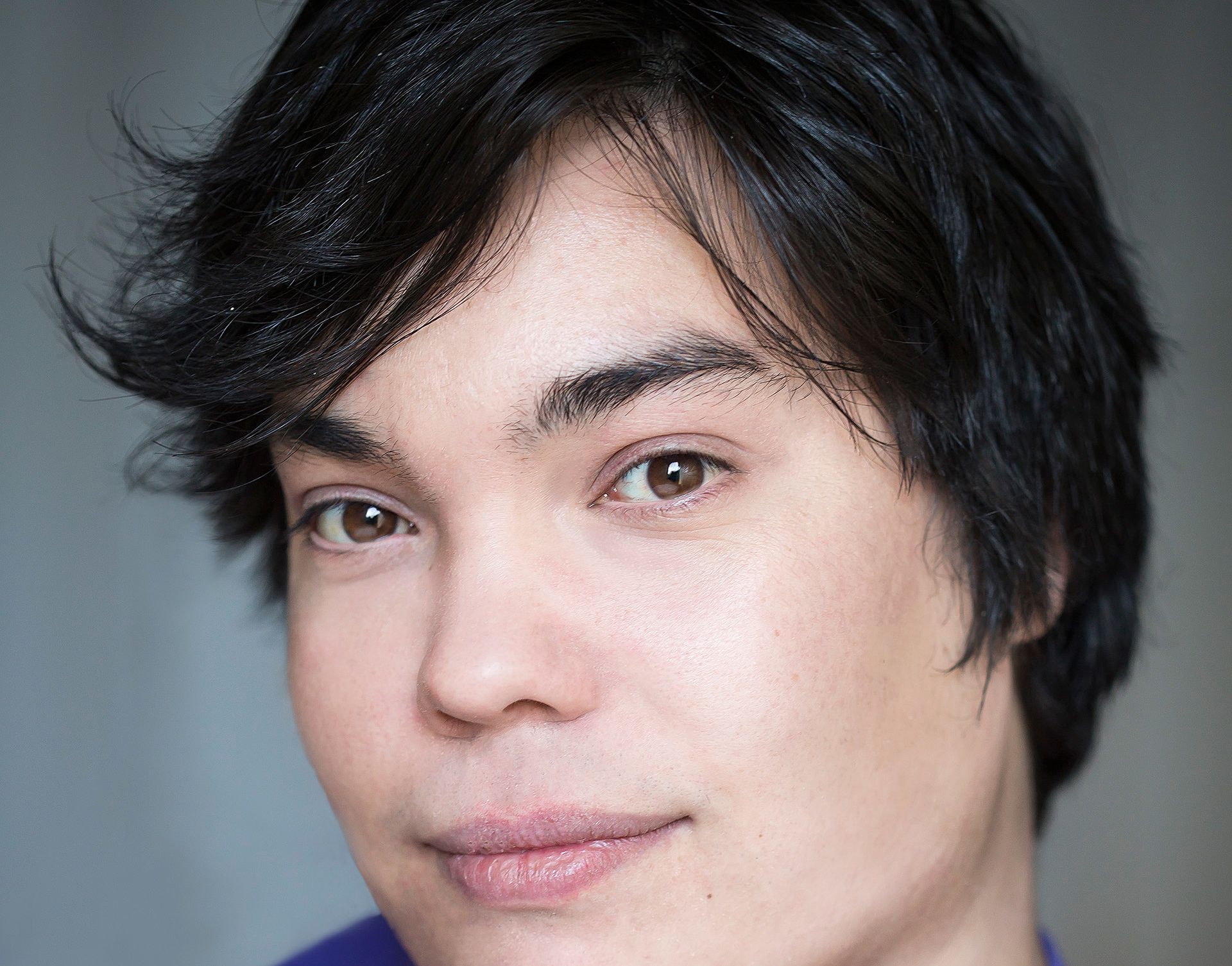Review: Puzzy
Giving us a rarity in theatre, Puzzy delivers an all-female, all-Polynesian cast, playing out the story of a Samoan Jehovah’s witness coming out to her family and congregation. Sam Brooks reviews.
One of the highlights of the Basement Pride season is the ability to engage with concepts of Pride that we might not think about when we think about Pride. In the past, this season has brought us the massive hit Black Faggot, Live Orgy and Girl on the Corner. This year it brings us Puzzy, the story of a Samoan lesbian who also happens to be a Jehovah’s Witness, and her path to coming out and self-acceptance.
The first thing that grabs you about this show is the cast. It is incredible, and depressingly rare, to see a cast full of Pacific Islander woman playing fully-formed characters that are neither stereotypical nor secondary. It’s Mele’s story, and Frankie Adams has to do the bulk of the heavy lifting in the play. It takes a while for her to settle into the character, but she eventually finds the life in the comedy of the play, and when she’s in full flight her voice is on form, her eyes are alive and she loses herself completely in the comedy. In the second half, when things inevitably get serious for Mele, she finds the core of the character’s dilemma: her struggle between her sexuality and her faith.
The rest of the cast play multiple characters, whether it be members of Mele’s family and congregation, or women she runs into on OK Cupid. Gabby Solomona continues her run of impressive performances, shifting in and out of roles smoothly, and hitting all her comic beats like a seasoned professional. She also has the unenviable role of playing Mele’s grandma, and while playing an elderly person can be a trap for a young actor, she anchors the character in a few careful choices. This means we focus on Solomona’s clarity in conveying this woman’s crisis of familial love, and how that comes out of her staunch faith in her religion.
Nora Aati is the comic highlight of the show, and she gets the biggest laughs of the whole hour with just a few gestures. In a show that is already far closer to the comedy side of comedy-drama, she serves as the comic relief and it’s welcome to have her shoot some energy into the piece. Malia Ahovelo is similarly hilarious, and she finds the soul and truth in all the characters she plays, especially a woman that Mele finds on a dating website. Ahovelo could play the stereotype, but she instead finds all the interesting sides of this woman; her shyness, her hurt, and her security in her identity, and she showcases these without it ever feeling like a showcase. It’s a hell of a debut.
It’s a joy to watch the entire cast, and on the rare occasion when they slip up, you can feel that it’s because of the script shifting them in a direction too far or too fast. The script is credited to Hawaiian writer KIKI ‘feat. Victor Rodger’, a credit which I haven’t ever seen before, but as I understand it, Rodger has adapted KIKI’s script to fit a New Zealand audience, changing the lead character from Hawaiian to Samoan. It’s a seamless shift, and aside from a few pulled punches, this could easily be a Rodger play.
This isn’t necessarily a good thing where a New Zealand audience is concerned. The first half of the play is more disjointed than the second, and the constantly shifting scenes set us up for an experience that is similar to Black Faggot, which followed several narratives in similarly shifting scenes, and when we settle on Mele’s story permanently it takes a while for the audience to settle into that fact.
"We’re still in an age where theatre rarely discusses religion on a personal level with any nuance, especially when you bring sexuality into the equation."
Puzzy's script is a tricky beast. On one hand, this is a story that has so many depths that we haven’t seen explored onstage before. I’ve never seen the story of a Samoan lesbian, and the specific struggles that a woman coming out in not only a Samoan world, but a modern world in general, has to go through. The play also touches on, but doesn’t delve into, a queer person dealing with how their sexuality conflicts with their faith. We’re still in an age where theatre rarely discusses religion on a personal level with any nuance, especially when you bring sexuality into the equation, and it’s bracing to see a Jehovah’s Witness portrayed as an actual person rather than a punchline. When Mele falls to the ground and pleads with Yahweh, we’re seeing a person whose sexuality conflicts so strongly with her creed while she still so strongly believes in the faith behind that creed, and it’s the most compelling moment in the whole show.
But on the other hand, the script doesn’t do the technical work to get us where we need to go. When Mele eventually does come out to her family, as is inevitable for stories like this, we hear things that we’ve heard before and we don’t get to linger on the scene and any of the history between the characters. A scene where Mele deals with an emotionally abusive partner could be powerful with a sufficient buildup and resolution, but it shows up as just another part of Mele’s development, and it is disjointed as a result. The show follows the rule of ‘make ‘em laugh to make ‘em cry’, but when we should be crying, it’s because the actors are jumping the gaps the script has left for them, not because the script is connecting us between scenes, beats and moments.
Anapela Polataivao’s direction helps to keep the show afloat in the more difficult moments too, and the entire thing moves along as smoothly as it possibly can. Her decision to keep the entire thing minimal also has the effect of making the play seem as bracing and raw as the subject it is tackling, even though this is, at its heart, a naturalistic play. Marshall Bull’s lighting does the same job, lending an oppressive mood to some scenes and an appealing softness to others; it heightens the entire thing, making the production seem as immediate and vital as it should be.
Puzzy is a show that should be seen. Despite the flaws, the chance to see a show with an all-women, all-Pacific Islander cast, that addresses sexuality and religion in a genuine way is a show that that you shouldn’t miss. We simply don’t get shows like this often, and Puzzy is a pertinent reminder that we should be getting them.
Puzzy runs at
The Basement Theatre
from February 9 - February 13
Buy your tickets here


